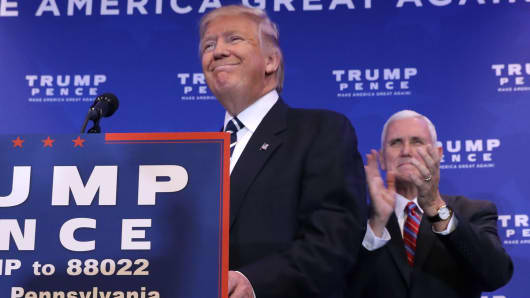President-elect Donald Trump recently threatened to block the gigantic AT&T/Time Warner proposed deal. He also has made comments that Amazon has a "huge antitrust problem" and hinted that the retailer isn't paying its fair share of corporate taxes.
Given his business background, on the surface this seems a rather surprising twist, but perhaps it shouldn't be. Though the President-elect does run a big business by most standards, through his career he's more often than not been the smaller independent fighting off competition from larger, multi-billion dollar conglomerates.
Consider that in the hotel business Trump competed with Marriott, (owner of Marriot, Ritz-Carlton, and JW Marriott brands), InterContinental Hotel Group, (Intercontinental, Kimpton, Crowne Plaza), Hilton, (Hilton, Waldorf-Astoria), Four Seasons, and many others. In real estate, he competes with many publicly traded multi-billion dollar real estate investment trusts with far deeper pockets. And in the past, his casinos brawled with fierce competition from MGM, Tropicana, Harrah's, and others. As big as Trump's businesses are, they would be considered the underdog in most of those markets.
One should never try to guess or assume what "most people" think, but it is reasonable to believe that many Trump backers, as well as haters, probably see him as a "corporate president" who will do nothing but back big business. But one wonders if his comments on AT&T and Amazon indicate there may be more than meets the eye to the regulatory path of Mr. Trump.



